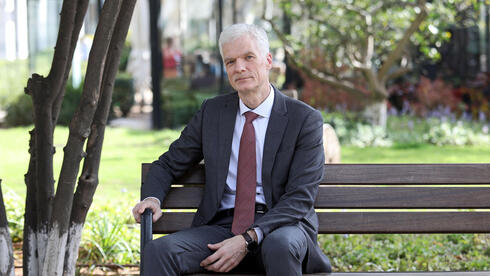
"We have to educate people for jobs that have not yet been created”
According to Prof. Andreas Schleicher, Director for Education and Skills at the OECD, academia needs to adapt to the labor market, and the state needs to subsidize higher education
Andreas Schleicher
(Dor Manuel and Sinai David)
"We have to educate people for jobs that have not yet been created, to use technologies that have not been invented yet, to solve social problems we can not yet imagine. Simple training for a job is no longer enough.” Prof. Andreas Schleicher, Director of Education and Skills at the OECD and one of the organization's senior executives, explains in a special interview ahead of the Calcalist "Academia that Works" conference in collaboration with the Edmond de Rothschild Foundation on May 24 at the Eretz Israel Museum in Tel Aviv.
In the interview, Schleicher, who also serves as special adviser on education policy to the organization's secretary general, Matias Korman, explains that Israel's position in the field is actually very good because "it is very good at producing value from highly skilled people." Although he is a trained mathematician and statistician, he believes that "the way of thinking has become more important than pure knowledge."
In the interview Schleicher also describes a gloomy outlook for the future of universities: "Today, universities have a lot of power because their content belongs to them, they provide the form of study, they teach and they also provide the certification. In the future, they may not have such a monopoly. Educational content is everywhere today and can be found almost universally."
Prof. Schleicher adds that "in our world, complex thinking ability is of great importance. Our world requires more and more knowledge and skills, so some form of post-secondary education is the norm. A hundred years ago, we asked how many people had to finish high school and why everyone should finish high school. Today it is obvious, and we ask the same question about higher education. The idea of 'continuing education' after high school should be a given. But at the same time, we must make sure that academia does not exist separately from the world of employment, but think about how to better integrate the world of employment with the world of learning. In the past, you would learn more and more, and then one day you would be ready and go out into the professional world; today you might reach the professional world earlier.”
You can watch the full interview in the interview above.















